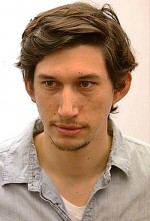Column Name
Title
How you know Adam Driver can read like a Rorschach test: maybe you know him as the shirtless boyfriend from HBO’s Golden Globe-winning series Girls because you secretly want to be BFFs with Lena Dunham. Maybe you saw him in John Osborne’s Look Back in Anger because you’re a British theater buff. Perhaps you’re a fashion-forward dude who reads GQ and saw the nine-page feature about him in the December issue. Or you might be aware that the versatile actor—and former Marine—has, since his Juilliard days, also played the role of entrepreneur. Building on his two and a half years in the military, Driver and his Group 38 classmate Joanna Tucker created Arts in the Armed Forces during their second year at Juilliard. The program, which is now in its fifth year, produces performances for current and former members of the United States Armed Forces and has featured actors such as Jake Gyllenhaal, Frances McDormand, David Schwimmer, Harris Yulin, and Susan Sarandon. Journal editorial assistant (and Girls fanatic) Molly Yeh (B.M. ’11, percussion) caught up with him recently.
Body
When you started Arts in the Armed Forces you were still at Juilliard. Did you ever feel like you were taking off important time as a student here in order to get the project off the ground?
No, I actually felt that they kind of worked hand-in-hand with each other. From the very beginning President [Joseph] Polisi put this emphasis on the artist as citizen, so if anything, it seemed to kind of be in perfect alignment with what it is we were doing. Also the idea of putting on and producing a project in the midst of working on something at school helped me become aware of all the other elements that go into making something happen. It’s always good to be aware that there are other elements making a production possible that aren’t just you as an actor, so it was invaluable training.
Do you feel that being an entrepreneur and an actor are compatible?
Yeah. In a way, it’s the most gratifying thing to work on because not only is it beneficial to have a project where the focus isn’t about you, but it’s also about using the craft as a service. As an actor, there’s nothing that sucks more than feeling that what you’re doing is irrelevant, and I feel like I’ve been fortunate enough to work on a lot of projects that seem very relevant and active and have a point of view and that reminded me that it’s a service. [Drama faculty member] Richard Feldman is the one that drilled this into my brain—acting is a business, a political act, a craft, and it’s a service. And to be able to execute that—there’s nothing more gratifying.
What do you wish you’d known about being an entrepreneur when you started Arts in the Armed Forces?
I’m happy that I was ignorant because had I known what the schedule of trying to operate a nonprofit would be like—had Joanna and I known what was required—I don’t think we would have undertaken it, or maybe we would have just done one event. So I’m happy that we were very ignorant.
What do you remember from the early days of the organization?
We really were going on a shoestring. I remember working on stuff in class and having 10 minutes to get from Rooms 301 to 302—next door—but having to literally sprint downstairs to the second floor to the computer lab to send off some e-mails and then running back to class and then having no time in between, but for some reason that seemed to be fine.
Is there one thing you would change about your time at Juilliard?
No. Even the frustrating things that happened at Juilliard were beneficial. It has its highs and lows and those moments of great satisfaction can sometimes feel so few and far between that you forget why you’re doing it. But those moments when things do click or make sense or when projects work out are gratifying—and even the bad moments are really educational. I kept thinking while I was there, “I’ll just finish up these four years and then I won’t have to deal with certain things again,” but that’s not how things work in life. It seems like acting continually needs to be a never-ending exercise in patience, and that doesn’t end just because you don’t go to Juilliard anymore. The good and the bad were both equally beneficial. That sounds like Juilliard propaganda, but it’s totally true.





